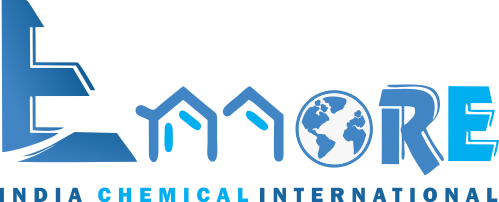Hypophosphorous acid/ HPA Manufacturer, Supplier, Exporter in chennai india
Hypophosphorous acid is a phosphorus oxoacid and a powerful reducing agent with molecular formula H3PO2. Inorganic chemists refer to the free acid by this name (also as "HPA"), or the acceptable name of phosphinic acid. It is a colorless low-melting compound, which is soluble in water, dioxane, and alcohols. The formula for hypophosphorous acid is generally written H3PO2, but a more descriptive presentation is HOP(O)H2 which highlights its monoprotic character. Salts derived from this acid are called phosphinates (hypophosphites).
HOP(O)H2 exists in equilibrium with the minor tautomer HP(OH)2. Sometimes the minor tautomer is called hypophosphorous acid and the major tautomer is called phosphinic acid.
Uses
Its main industrial use is for electroless nickel plating (Ni–P), although it is primarily used as a salt (sodium hypophosphite). In organic chemistry, H3PO2 can be used for the reduction of arenediazonium salts, converting ArN+
2 to Ar–H When diazotized in a concentrated solution of hypophosphorous acid, an amine substituent can be removed from arenas, selectively over alkyl amines. Owing to its ability to act as a mild reducing agent and oxygen scavenger it is sometimes used as an additive in Fischer esterification reactions, where it prevents the formation of colored impurities. Hypophosphorous acid is also used in the formulation of pharmaceuticals, discoloration of polymers, water treatment, retrieval of precious or non-ferrous metals.
DEA List I chemical status
Because hypophosphorous acid can reduce elemental iodine to form hydroiodic acid, which is a reagent effective for reducing ephedrine or pseudoephedrine to methamphetamine, the United States Drug Enforcement Administration designated hypophosphorous acid (and its salts) as a List I precursor chemical effective November 16, 2001. Accordingly, handlers of hypophosphorous acid or its salts in the United States are subject to stringent regulatory controls including registration, recordkeeping, reporting, and import/export requirements pursuant to the Controlled Substances Act and 21 CFR §§ 1309 and 1310.
